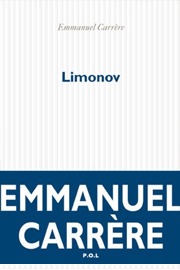Two Megalomaniacs
A review of two books on megalomaniacal personalities, The Baron's Cloak, by Willard Sunderland, and Limonov by Emmanuel Carrere.
Limonov
by Emmanuel Carrère
From the outside, the life and adventures of an audacious, charismatic personality like Eduard Limonov — radical, poet, drifter, National-Bolshevik — seems attractive, interesting, intriguing. And even if people don’t agree with his politics (few do), «they like his fiery personality, they admire his talent and audacity...»
Born on the Volga just days before the German surrender at Stalingrad, Limonov was the son of a Chekist, and at various points in his colorful life: a street punk, a radical underground poet, an émigré, a lionized writer, a notorious fighter alongside heinous Serbs, and a jailed faux revolutionary. Today he is a more or less tolerated radical oppositionist. He has lived 10 lives in the space most people reserve for one, yet has never attained the power and notoriety that he sought. He wanted to be a soldier or lead a revolution. Instead, he was merely a colorful sideshow.
Limonov’s life has unfolded alongside the collapse of the Soviet Union and the rise of the authoritarian petrostate that is modern Russia. His life is in part a reflection of that narrow, tortured reality, but even more so it is an echo of our world more generally, of our modern obsession with celebrity and power, charisma and audacity, even if it is in pursuit of bankrupt ideas.
Carrère, a gifted writer and journalist, seeks to find out what Limonov’s world looks like from the inside, what this larger than life character thinks of the world and his place in it. Indeed, Carrère calls his work a novel, because he repeatedly tries to imagine himself inside Limonov’s head, to speculate what he must have been thinking at the time. Working from memoirs, interviews and direct access to Limonov, he delivers a fascinating biography. The book is as interesting for how well it is written and told as it is for the bizarre, seemingly fictional character it chronicles.
The Baron's Cloak
by Willard Sunderland
Born to Austrian nobility, a soldier of the Russian empire, a Cossack, a megalomaniacal, murderous anti-revolutionary, Baron Roman Feodorovich von Ungern-Sternberg was a reflection of his age. The turning of the twentieth century through the First World War was a time of great flux and modernization, when empires tore apart at their seams, when millions were sacrificed on the crucible of ideas, when a single soldier could muster a small force and commandeer a nation.
For Ungern, notorious for his cruelty, anti-Semitism, and ruthless leadership as a White commander during the Russian Civil War, that nation was Mongolia, and he (almost unwittingly, it seems) sought, in the final year of his life, to make it the vanguard of a new Asiatic power to counteract the scourge of Bolshevism. He failed in his «campaign» to take Mongolia (which Sunderland shows to be far less intentional than has been ascribed), was captured and shot. Yet he also partially succeeded, in that Mongolia gained a semi-autonomy that lasted through the Soviet era.
Unlike other accounts of Ungern, Sunderland does not give overmuch attention to this final year of his life, instead focusing on the broader sweep of events, on the full arc of Ungern’s life from Austria to Estland, from Trans-Baikal to Mongolia. In part, this is because there is really very little to know about Ungern, but also because Sunderland wants to show how the multinational, ever-bored Ungern was an apt, if sociopathic, mirror of his times. The effort succeeds and this is a fine history of the era.
«Russian Life», january/february 2015
 copyleft 2012–2020
copyleft 2012–2020